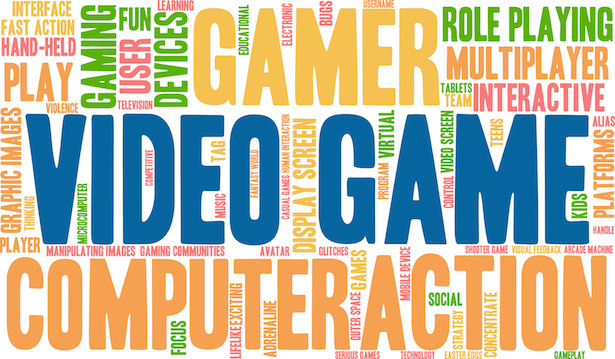Games and Culture recently published a fascinating article,”Framing Gaming: The Effects of Media Frames on Perceptions of Game(r)s”, written by Anna Sophie Kümpel and Alexander Haas, about the influence of media portrayals of video games and gamers on beliefs about gaming. Now, it might seem like the simplest thing in the world to say, “if the media covers something in a negative light, people will view it negatively; if they cover in a positive light, views will view it positively”, but the problem is that no matter how much the majority of us may believe that statement, we as a species are a narcissistic lot. We think we are smarter than everyone else, and above all, we think our thoughts, ideas, and actions, are our own (this is called self-other discrepancy). So in fact, this research article is incredibly important for understanding why and how people think the way they do about games.
Many studies, blogs, and articles exist that discuss the role of media in the world of video games. Long have news outlets salivated at the chance to put a value frame around games: games are dangerous, a waste of time, beneficial, the future of education, ruining our youth, and so on. We contest these or agree with them according to the research, but there haven’t been any studies until this most recent one that proves the effect the value framing of games by the media has on people’s perceptions of games. What’s powerful about these findings, if they are right, is we can begin to understand why some people continually hate and devalue games: it’s because it’s the way games have been framed to them and continue to be framed in most media. Thus counter-acting those beliefs will rely more on exposure to research and providing positively framed stories than it will on fighting with someone who says games are horrible to convince them otherwise or thinking that person is an idiot and moving on. Though they might be an idiot as well. Those aren’t mutually exclusive.
An interesting finding from the article that is secondary to the main argument is that value framing also determines the “importance people attach” to a particular issue (723). (Do we humans have any unique thoughts at all? I don’t know.) How important we think an issue is is usually related to our experience, rather than solely on news coverage. In other words, if we have experience something like sexual harassment, we tend to think the issue is more or less important than the average person who has not. Gaming as an issue does follows this rule somewhat: non-gamers form opinions based on media frames (724) while gamers base their opinions on experience, making productive discussion between the two groups difficult. But if we can understand that importance is attached to an issue in multiple ways, that may make for better and more productive discussions.
One of the most telling parts of the study was that those who have a negative opinion of games see a bigger gap between themselves and others than if they were exposed to positive media. To me this shows that the more negatively a story or issue is framed, the further it drives audience members apart, even if they agree. Those influenced by negative media see themselves as more right, more knowledgeable that others even if they viewed the same thing. Is it any wonder then that those who hate, who are surrounded by negativity, keep moving further towards isolationism? Seems to make sense, especially in light of the recent election. Yes, negatively framed media creates more zealous believers, but they are so zealous they are driven apart from each other as well. It’s not a sustainable way to get people on your side.
But enough of the digression. In the study, researchers used an article that had the same title, subtitle, and information, but were framed with different values. Think about that: the exact same information can be presented, but depending on how it’s framed, will give the audience totally different perspectives. Who said words didn’t have power?
So media portrayals of games and gamers influence the public’s perception of games and gamers, which in turn influences things like policy. As the authors of the article pointed out, this is one of the reasons why we see a flurry of anti-gaming activity after games are discussed in the context of something like a school shooting. What this means for us, for all of us gamers and academics who care about games, is that we need to do more positive with games. We need to give people something to talk about, thing about, watch, and read that frames games positively. Maybe we conduct studies the show and prove and determine beyond a shadow of a doubt that games have many more benefits than dangers. Maybe we share more stories about how games have influenced us. Maybe we use them more in the classroom and publish about it. There are many, many options. And I think that is an uplifting goal to pursue.
The article referenced is called “Framing Gaming: The Effects of Media Frames on Perceptions of Game(r)s” and can be found in Vol 11(7-8) of Games and Culture. I would link my copy here, but I’m pretty sure that’s illegal.





One thought on “Media Perception and Value Frames: Does Media Coverage Dictate Feelings Toward Gaming and Gamers?”
Great article – when I read it, I instantly thought about my friend’s/family’s attitudes towards gaming as a ‘waste of time’, or something inherently unproductive. Amusing, given that they’re happy enough to binge watch an entire TV series! I feel this has certainly been conditioned by mainstream media portrayals of games and gamers, interactive media forms still seem to be considered with such caution, and yet there is so much more room for negotiation in terms of what is being (politically, culturally, socially) presented to us (in contrast to passive forms).